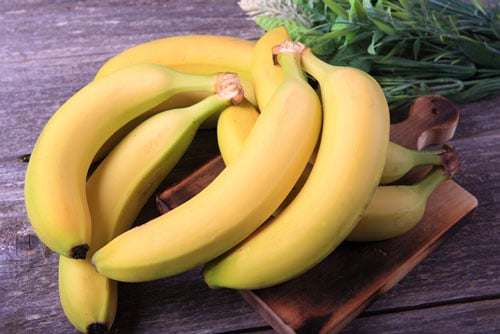Long-time Health Watch readers know that we strongly recommend eating organic foods.
But we also recommend common sense.
Organic foods are expensive. And in some cases, the cost isn’t worth the benefits. Here are eight foods whose organic versions aren’t worth the higher price:
- Bananas. The thick peel keeps out pesticides.
- Fish. It’s meaningless to label fish as organic because there is no official standard for organic seafood. Instead, look for wild-caught rather than farm-raised fish.[1]
- Avocados. The skin is thick enough to block pesticides. And even non-organic avocados are rarely sprayed.
- Popcorn. Because of the husk, non-organic corn kernels have little pesticide residue. But avoid microwave popcorn whether it’s organic or not. The bags are coated with chemicals linked to cancer.[2]
- Pasta. Pasta is made from wheat flour. During the flour-making process, the outer layers of wheat are removed. Any pesticide residue is removed with them.
- Olive oil. Olive trees are very hardy. They typically require little pesticide intervention. Non-organic olive oil is likely to come from trees that haven’t been sprayed.[3]
- Quinoa. It contains a compound called saponins, which is a natural insect repellent. So farmers generally don’t have to use pesticides on quinoa.[4]
- Cauliflower. Tests show it retains little pesticide.
13 Fruits and Vegetables You Should Always Buy Organic
On the flip side, there are certain foods you should always buy in organic versions. Pesticides can seep into these fruits and vegetables. These include:[5]
- Tomatoes
- Celery
- Potatoes
- Strawberries
- Kale
- Spinach
- Apples
- Grapes
- Nectarines
- Peaches
- Pears
- Celery
- Hot peppers
Organic is better. It’s that simple. But sometimes the benefits are so marginal that it doesn’t justify the premium price.
Being a wise consumer means knowing when it’s OK to save a few dollars.
Editor’s Note: Discover natural, non-drug methods to transform your health. Read Independent Healing. It’s your best source for unbiased, evidence-based medical information. To subscribe, click HERE.
Related Articles
Why Many ‘Organic’ Restaurants Actually Aren’t
Why Eating Organic Helps You Sleep Better
Best Ways to Save Money on Organic
Food
Like this Article? Forward this article here or Share on Facebook.
[1]https://www.nytimes.com/2006/11/28/business/28fish.html?mtrref=www.google.com&gwh=810312A2C838FEDDE760CF63A52DFD66&gwt=pay
[2]https://www.healthline.com/health/microwave-popcorn-cancer#cancer
[3] http://www.centrafoods.com/blog/organic-olive-oil-vs-non-organic
[4]https://www.sciencedirect.com/topics/agricultural-and-biological-sciences/saponin
[5]https://www.ewg.org/foodnews/dirty-dozen.php

